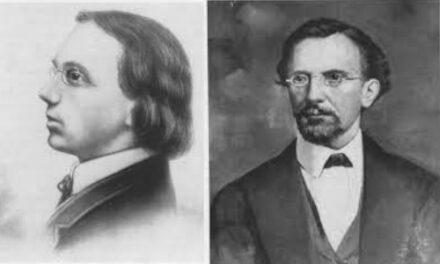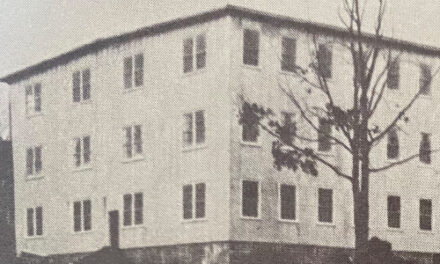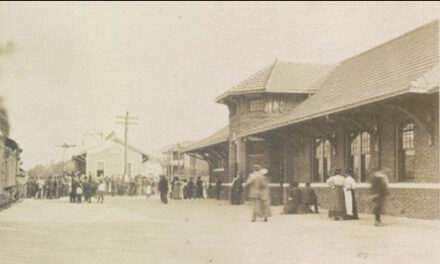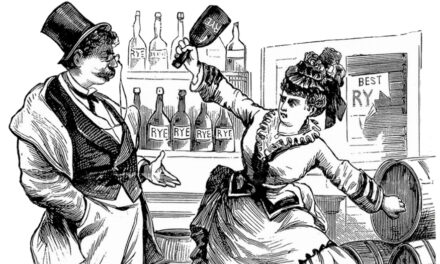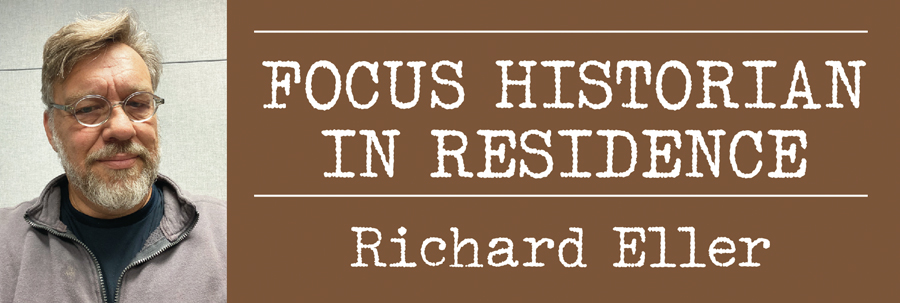
Before roads got better and automobiles took over from trains as the best way to get around, Hickory was a vacation destination. People from all over came to town via the railroad to enjoy the air and look north and westward toward the mountains as a respite from the hustle and bustle of big city life. One of the best places to kick back and enjoy an extended stay was the Hickory Inn, built in 1888. It even had a tower to see the Blue Ridge and enjoy the scenery it provided.
In 1892, a local African American man worked at the Hickory Inn as a gardener, named Sam Tally, Tully or Tilley, versions differ. He kept the flowers growing and the lawn fresh for those who came to stay. Visitors could leisurely stroll the grounds as part of their daily activities, enjoying the work of Mr. Tally and the other employees of the Hickory Inn who strived to make staying at the resort a special experience.
On a Saturday afternoon in September, while Tally was mowing the yard, a couple walked the grounds. They were newly married and on their honeymoon. The groom, O.M. Cawthorn made a disparaging remark about the quality of Sam Tally’s work. The gardener heard the insult and replied to the guest. The conversation escalated and grew so heated that Cawthorn pulled a gun and shot Tally, killing him right there on the lawn of the Hickory Inn. The gunman immediately went to his room.
Quickly, the town was in an uproar over the murder. One paper described the shooting as “cold-blooded,” The black citizens were described as “obstreperous,” a Victorian-era term that meant they wanted justice. Cawthorn was arrested and taken to jail, which he may have wanted, because it was safer than his hotel room. The next day, Cawthorn’s 19-year-old bride and her mother boarded the noon train to take them back to Selma, Alabama, their home. By that point, Cawthorn himself had escaped. Soon after being taken into custody, “he knocked a guard down with a chair and escaped into the woods.”
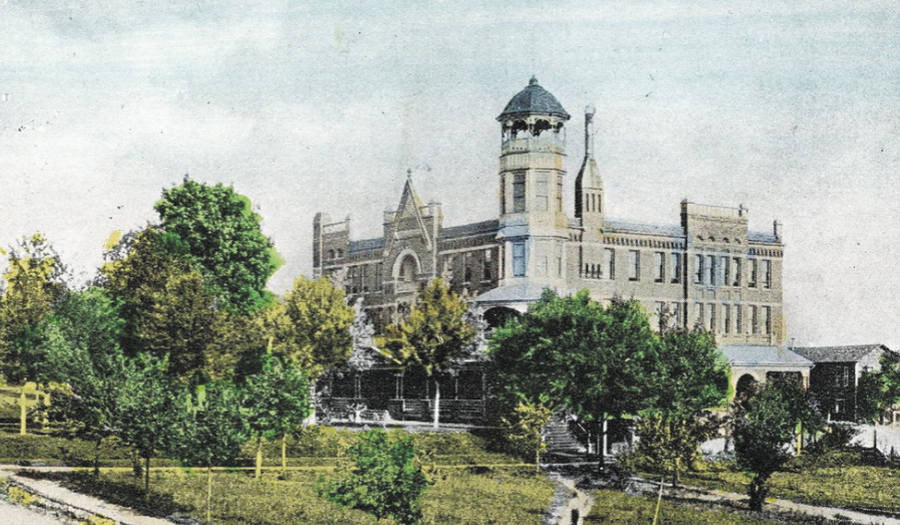
The lavish Hickory Inn, site of the murder of Sam Tally
A month later, O.M. Cawthorn was apprehended, back in his hometown. Brought to Newton and arraigned, bond was set at $3,000 which was paid by Cawthorn’s father, who was prominent back in Selma. The elder Cawthorn brought his lawyer, a Mr. De Graffenried with him. A trial date was set for the January term of superior court but ultimately the case was not tried until July.
Over time, Cawthorn told different stories about the incident. Soon after first reporting that an argument was the cause of the shooting, the perpetrator claimed that Tally had insulted his wife. Then, came the allegation that Tally had attacked him with a pitchfork, thus causing Cawthorn to use deadly force in the altercation. He pled self-defense.
When the case was finally tried, Cawthorn had a total of eight lawyers defending him. Some were from Alabama, but most were local, something of ‘who’s who’ of litigators, that included George McCorkle of Newton, G.F. Folk of Lenoir, H.C. Denny of Hickory and Romulus Z. Linney, called “the Bull of the Brushies,” the most famous attorney in Western North Carolina. He got the nickname because of his “fiery oratory” as both a lawyer and politician.
By the time of the trial, the name of Sam Tally/Tully/Tilley had been lost. Newspaper reports no longer mentioned him by name, only that Cawthorn “had killed a negro at Hickory.” Once the jury heard the lawyer ‘dream team’ lay out their version of the incident, they sided with the defense. There was not anything the prosecution team of solicitor W.C. Newland or his volunteer co-counsel Marcellus Thornton could do to convict Cawthorn. The defendant was found not guilty and released.
The murder of Sam Tally serves as a reminder about how inadequate the legal system can be, a reflection of the times in which it operates. Next month, the anniversary of the trial will mark 130 years since the verdict. Some things have changed, others not so much.

